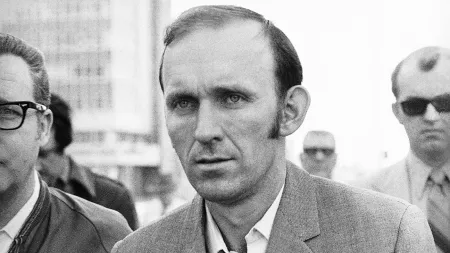Photos: YouTube\Twitter
New Haven, CT – Thursday, the Center for Policing Equity released the following statement regarding the Biden Administration’s new executive order on policing:

The executive order (EO) on policing and public safety that President Biden signed on Wednesday is a policy win that ultimately falls far short of what communities, policy analysts, and advocates have called for in the two years since George Floyd’s murder. The Center for Policing Equity (CPE) is heartened by the effort but unsatisfied by its scope. We urge the president, his administration, and Congress to continue the work toward a more fundamental reshaping of public safety.
Students of history will recognize the pattern the administration comes perilously close to repeating: In 1967, President Johnson responded to racist police violence with the Kerner Commission; the commission’s report recommended structural changes to the policing of Black communities. In 1992, then-presidential candidate Bill Clinton stressed the importance of an honest reckoning with race in this country; in 1994, President Clinton oversaw the creation of the Community Oriented Policing Services (COPS) program, which invested more funds in law enforcement and urged the public to offer “respect and support” to officers.
In 2014, President Obama established the Taskforce on 21st Century Policing; the task force held seven hearings with 140 witnesses and reviewed massive amounts of testimony from the general public, ultimately releasing recommendations and an implementation guide. For more than fifty years, every time a major issue has arisen around race and policing, the federal government has cast somber eyes on the problem, as if seeing it for the first time–as if Black, Brown, and Indigenous communities have not already testified, time and again, to the fact that those empowered by the state to protect them engage, instead, in violent behavior that compounds generational traumas.
For more than fifty years, these communities have gotten commissions, reports, the occasional new federal body, and a wealth of promises–but only rarely have we seen Congressional action, follow-through on recommended structural changes, or evidence-driven assessment of those recommendations’ efficacy.
President Biden’s EO deviates from this pattern in that it represents an attempt by the executive branch to accomplish something the legislative branch has abjectly failed to do–but like its antecedents, it is not a comprehensive plan to ensure that the descendants of African slaves and other vulnerable communities will one day have a fundamentally different relationship with state violence.
We acknowledge the potential value of several elements of the EO, such as the introduction of use-of-force data collection, an accountability database, and a commitment to study and address the impacts of law enforcement’s use-of-force in vulnerable communities. However, such ideas are only as good as their implementation. If the administration fails to engage data science experts, public health researchers, and, crucially, the communities most affected by the violence in its efforts, those efforts will almost certainly fail.
“Those with the greatest expertise in law enforcement disparities are the Black and Brown communities that have carried the burden of inequitable policing throughout this nation’s history,” said Eric Cumberbatch, CPE’s Senior Vice President of Policy & Community Engagement. “They and the scientists, practitioners, and organizers who work closely with them have already invested years in developing innovative ideas for shrinking law enforcement’s footprint and designing non-police solutions. What they need now is investment in, collaboration on, and support for the work they’ve already done.”
For more than fifty years, the federal government has attempted to address a history of egregiously inequitable policing with old ideas and the good intentions of the man in the Oval Office. Those efforts have, manifestly, failed. The time has long since come to do something different. CPE calls on the Biden administration to view Wednesday’s EO not as a goal met but as a first step on the path toward the transformative, community-driven redesign of public safety so necessary to building communities that are safe, healthy, and equitable.
















